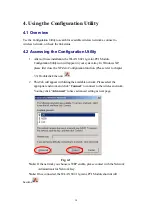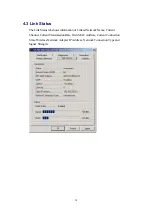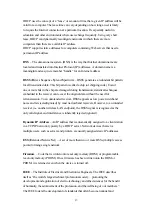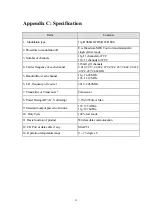
27
DHCP uses the concept of a “lease” or amount of time that a given IP address will be
valid for a computer. The lease time can vary depending on how long a user is likely
to require the Internet connection at a particular location. It’s especially useful in
education and other environments where users change frequently. Using very short
lease, DHCP can dynamically reconfigure networks in which there are more
computers than there are available IP address.
DHCP supports static addresses for computers containing Web servers that need a
permanent IP address.
DNS
– The domain name system (DNS) is the way that Internet domain name are
located and translated into Internet Protocol (IP) addresses. A domain name is a
meaningful and easy-to-remember “handle” for an Internet address.
DSSS
(
D
irect-
S
equence
S
pread
S
pectrum) – DSSS generates a redundant bit pattern
for all transmitted data. This bit pattern is called a chip (or chipping code). Even if
one or more bits in the chip are damaged during transmission, statistical techniques
embedded in the receiver can recover the original data without the need for
retransmission. To an unintended receiver, DSSS appears as low power wideband
noise and is rejected(ignored) by most narrowband receivers. However, to an intended
receiver (i.e. another wireless LAN endpoint), the DSSS signal is recognized as the
only valid signal, and interference is inherently rejected (ignored).
Dynamic IP Address
– An IP address that is automatically assigned to a client station
in a TCP/IP network, typically by a DHCP server. Network devices that serve
multiple users, such as servers and printers, are usually assigned static IP addresses.
ESS
(
E
xtended
S
ervice
S
et) – A set of more than two or more BSSs (multiple access
points) forming a single network.
Firmware
– Code that is written onto read-only memory (ROM) or programmable
read-only memory (PROM). Once firmware has been written onto the ROM or
PROM, it is retained even when the device is turned off.
IEEE
– The Institute of Electrical and Electronics Engineers. The IEEE describes
itself as “the world’s largest technical professional society – promoting the
development and application of electro-technology and allied sciences for the benefit
of humanity, the advancement of the profession, and the wellbeing of our members.”
The IEEE fosters the development of standards that often become national and





































